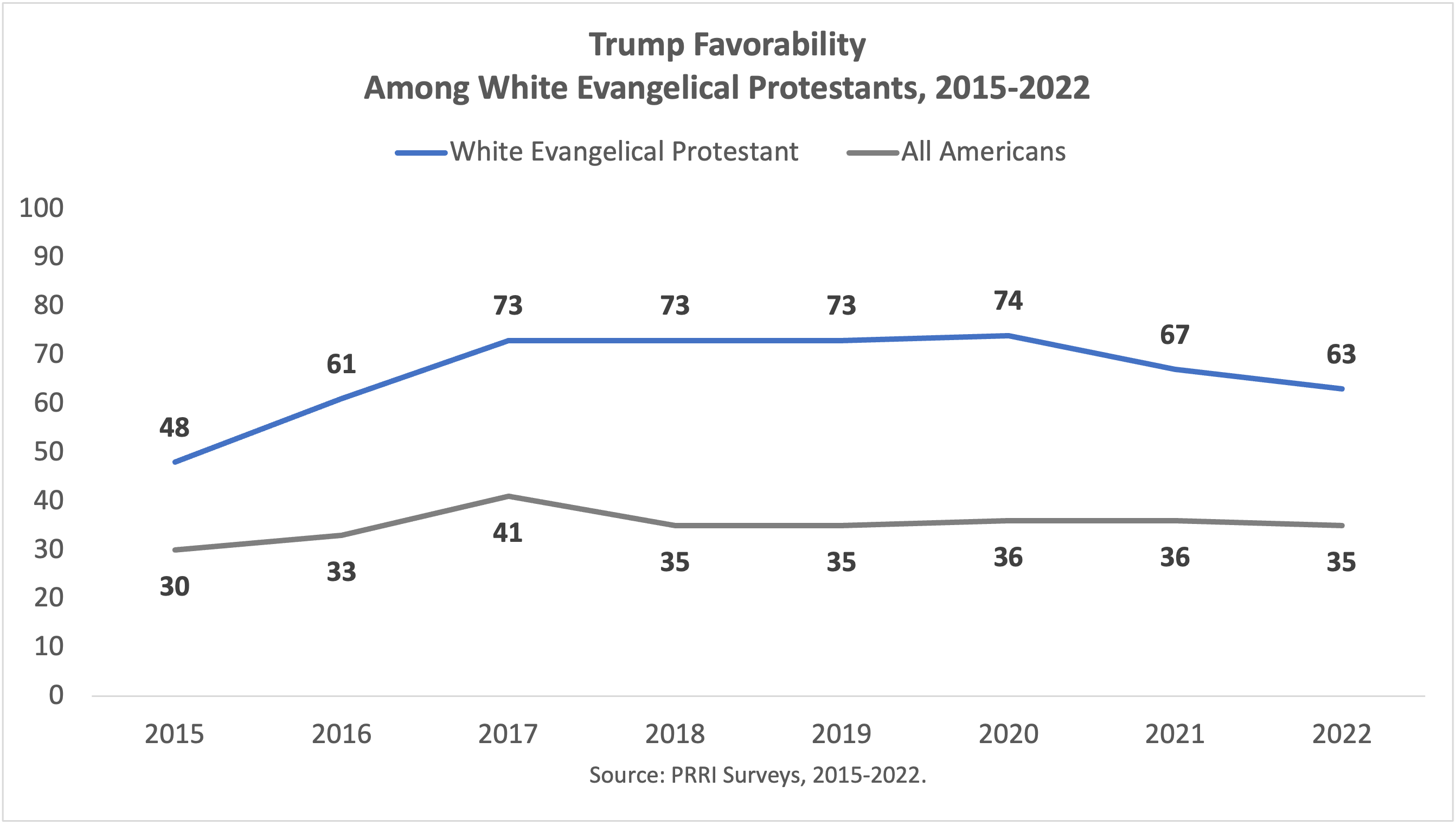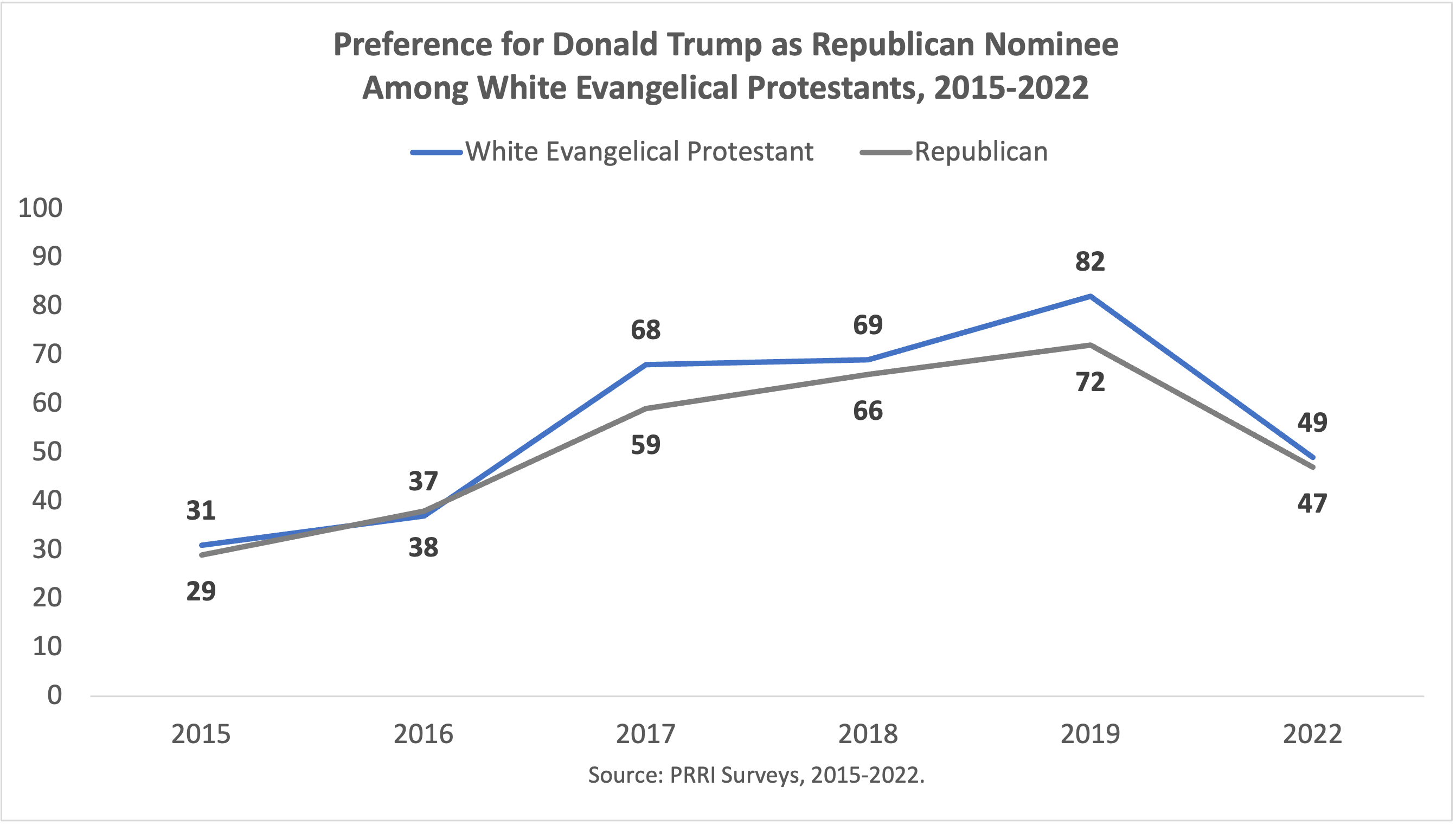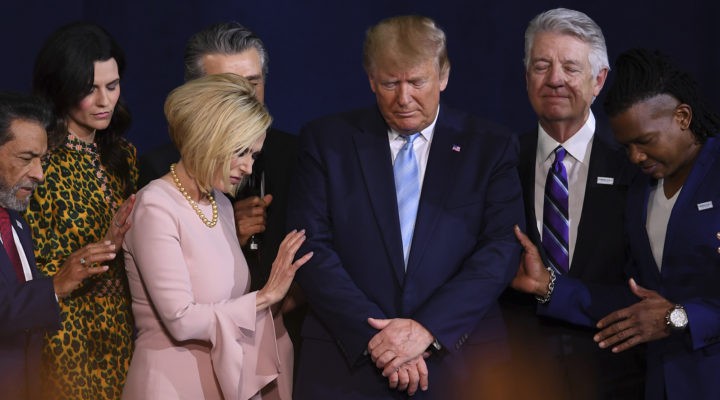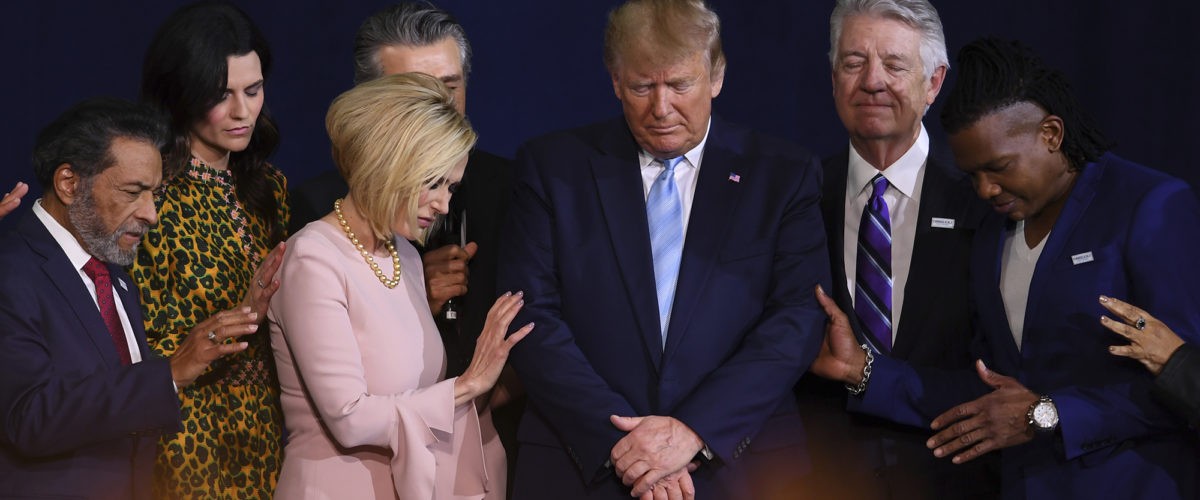In a recent interview, David Brody of the Christian Broadcasting Network asked former President Donald Trump what he thought about the reticence of some white evangelical Protestant leaders, such as Southern Baptist megachurch pastor Robert Jeffress, to endorse his candidacy for president in 2024. Trump caused quite a stir by accusing white evangelical Protestants of being “disloyal” to him.
Here’s Trump’s full response:
Well, I don’t really care. Look, it’s a sign of disloyalty. There is great disloyalty in the world of politics. And that’s a sign of disloyalty. … Nobody has ever done more for right to life than Donald Trump. I put three supreme court justices who all voted … Roe v. Wade, they won, they finally won. And I was a little disappointed because, I thought they could have fought much harder during the election, the 2020 election. A lot of them weren’t around and weren’t around to fight. … There’s nobody that’s done more for the movement than I have, that includes the movement of evangelicals and Christians and the movement very much of right to life.

Robert P. Jones (Photo by Noah Willman)
These remarks are yet another indication of Trump’s debasement of the ideals of public service. He narrows politics to quid pro quo transactions, where a leader looks only to deliver the goods and advance the interests of his most ardent supporters, divorced from concerns about the common good. In return for this patronage, loyalty is expected among the beneficiaries. Such fealty to an authoritarian ruler is the stuff of feudalism and monarchy, not democracy.
They tarnish our ideals about the motivations for seeking public office in a democracy. Trump’s remarks amount to an inversion of John F. Kennedy’s call for public service: “Ask not what your candidate can do for you, but rather what you owe your candidate.”
Beyond this diminishment of a high calling, Trump’s accusation of disloyalty betrays a misunderstanding of white evangelical politics. While we know Trump has a narcissistic obsession with displays of submissiveness from individual leaders, endorsements never were the key to his support among rank and file white evangelical Protestants.
While white evangelical elites were arguing over the appropriateness of supporting Trump in 2016, white evangelical voters were steadily lining up behind him. Despite other evangelical-friendly alternatives such as Mike Huckabee (remember him?) and Ted Cruz, by the time Super Tuesday rolled around, Trump handily mopped the floor with them from Mississippi to Michigan. And even in the wake of scandal after scandal during his candidacy and early presidency, white evangelical support for Trump remained steadfast.
“Trump’s outlook might be sunnier if he’d actually pay attention to the polling he so loves to denigrate.”
Trump’s outlook might be sunnier if he’d actually pay attention to the polling he so loves to denigrate. The chart below shows Trump favorability among white evangelical Protestants from PRRI surveys between September 2015 and September 2022. This trend reveals two important insights.
First, Trump’s ungracious forced exodus from the White House — including a historic second impeachment, persistent lies about the validity of the election he lost, refusal to welcome incoming President Joe Biden and First Lady Jill Biden, and an attempt to overturn that election by inciting an insurrection — have had only modest effects on his popularity among his most ardent supporters. His favorability rating among white evangelical Protestants stayed above 70% during his entire stay in office (twice that of the general public) and has since only fallen to 63%.
Second, in terms of favorability, Trump is actually in better shape at this point in the presidential race, compared to two election cycles ago. In 2015, as he was seeking the GOP nomination, his favorability among white evangelicals was only 48%, compared to 63% today. Notably, his current favorability among white evangelicals looks like it did after he had seized the official Republican Party nomination as their presidential candidate in 2016.

There is one other trend line that, on the face of it, reveals some concerns for Trump. Leading into the 2020 presidential election, more than eight in 10 (82%) white evangelical Republicans backed Trump as their preferred nominee. By fall 2022, white evangelical Republicans were divided (49% said they preferred Trump, 50% said they preferred some other candidate).
While 33 percentage points is certainly a significant drop, it appears less concerning in context: Even on this measure, Trump is in a stronger position with white evangelical Protestant Republicans for the 2024 election cycle than he was at this point in the 2016 election cycle among a crowded GOP field.

In other words, we may have seen this movie before. Pundits and journalists would do well not to repeat the hasty conclusions they made about the viability of Trump’s candidacy in 2016. Even while Trump’s ego is fixated on the white evangelical leaders who are withholding endorsements, white evangelical voters — the ones who matter in elections — are signaling less ambivalence.
Robert P. Jones is CEO and founder of PRRI and the author of White Too Long: The Legacy of White Supremacy in American Christianity, which won a 2021 American Book Award.
This column originally appeared on Robert P. Jones’s substack #WhiteTooLong. In partnership with the author and PRRI.
Related articles:
Evangelical pastors not yet jumping on Trump’s campaign bandwagon
God’s anointed politician: We’ve seen this act before | Opinion by Rodney Kennedy


